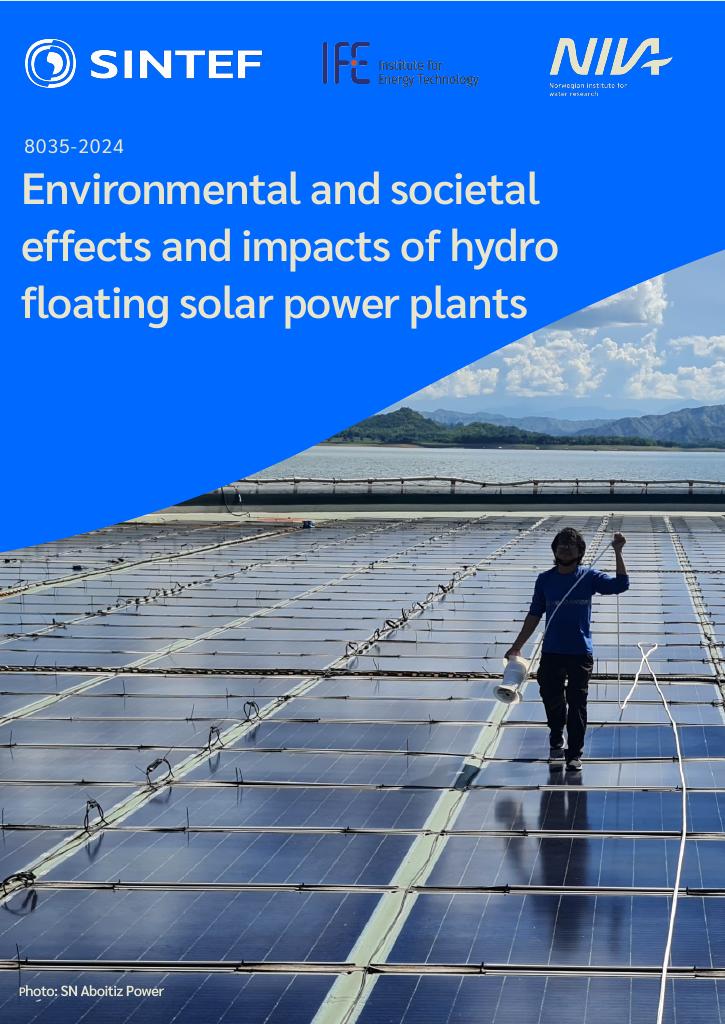Studie
Environmental and societal effects and impacts of hydro floating solar power plants
Floating solar (FPV) energy production represents an innovative technology with the potential to increase renewable power production, meeting both rising consumption and the need to replace fossil-based energy. The HydroSun Competence project, led by the Institute for Energy Technology (IFE) and funded by the Norwegian Research Council, aims to support the rapid, cost-efficient, and sustainable development of renewable energy. This report, a deliverable of the work package led by NIVA, addresses the environmental and societal impacts of FPV on hydropower or multi-purpose reservoirs. Using the Magat reservoir in the Philippines as a case study, it investigates the effects of different FPV scenarios on environmental variables such as evaporation, water temperature, oxygen levels, and greenhouse gas emissions, as well as economic and socio-cultural factors. The study compares baseline, low cover, and high cover FPV scenarios, suggesting measures to enhance benefits and mitigate adverse impacts. The findings emphasize the importance of context-specific assessments and provide recommendations for optimizing FPV design and deployment to optimize benefits.
Publisert
Eier
Norges forskningsråd
Utførere
SINTEF AS, Institutt for energiteknikk og Norsk institutt for vannforskning
Forfattere
Ingrid Nesheim, François Clayer og Atle Harb
Språk
norsk (bokmål)
Kilde
ISBN
9788257777722
